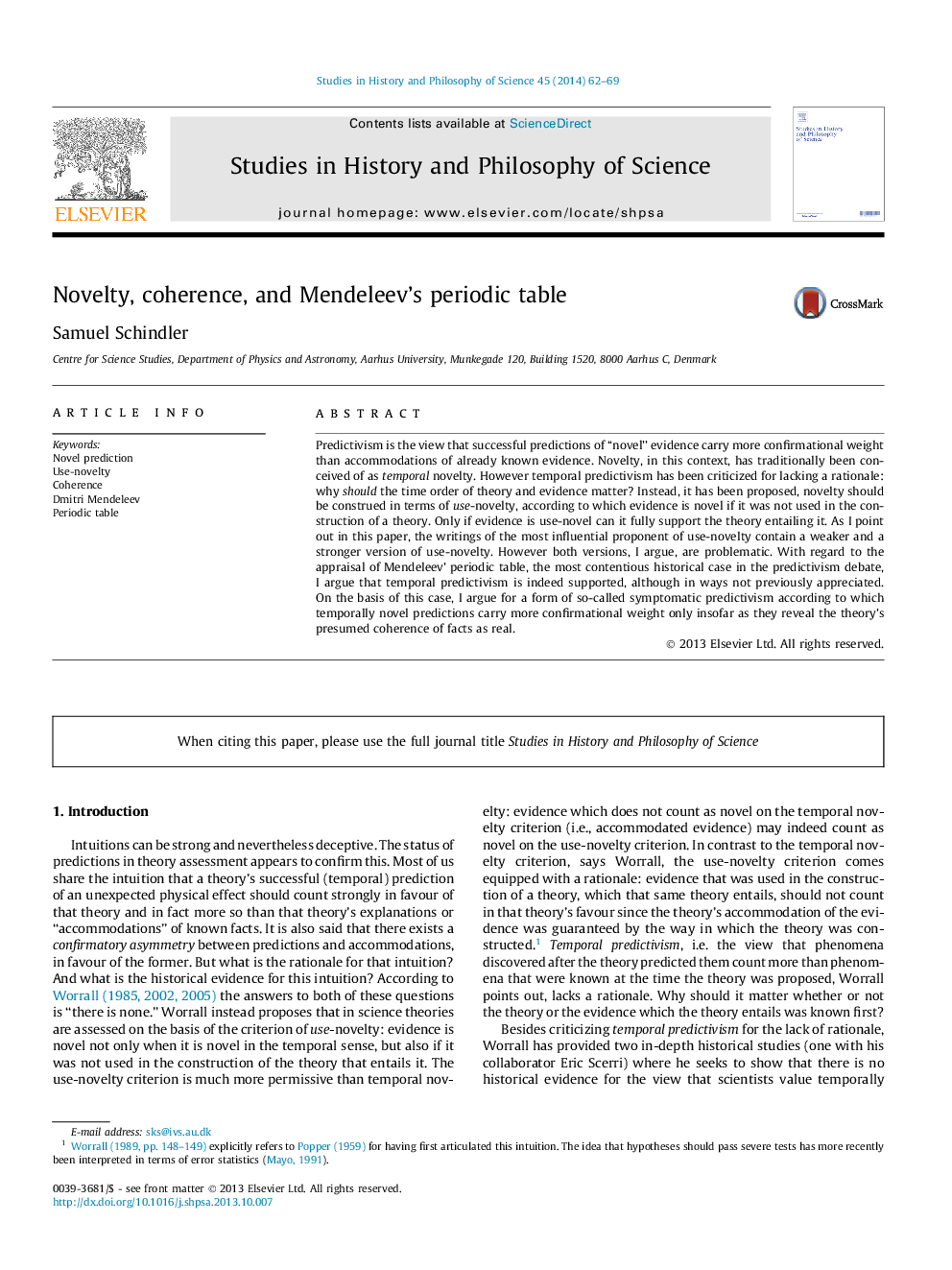| کد مقاله | کد نشریه | سال انتشار | مقاله انگلیسی | نسخه تمام متن |
|---|---|---|---|---|
| 1160897 | 1490337 | 2014 | 8 صفحه PDF | دانلود رایگان |
• Discerns hitherto unacknowledged versions of John Worrall’s account of use-novelty.
• Argues that both the strong and the weak version face major obstacles.
• Discusses novel success with regard to the appraisal of Mendeleev’s periodic table.
• Defends a local-symptomatic form of predictivism.
• Predictions are important only when vindicating a theoretical property.
Predictivism is the view that successful predictions of “novel” evidence carry more confirmational weight than accommodations of already known evidence. Novelty, in this context, has traditionally been conceived of as temporal novelty. However temporal predictivism has been criticized for lacking a rationale: why should the time order of theory and evidence matter? Instead, it has been proposed, novelty should be construed in terms of use-novelty, according to which evidence is novel if it was not used in the construction of a theory. Only if evidence is use-novel can it fully support the theory entailing it. As I point out in this paper, the writings of the most influential proponent of use-novelty contain a weaker and a stronger version of use-novelty. However both versions, I argue, are problematic. With regard to the appraisal of Mendeleev’ periodic table, the most contentious historical case in the predictivism debate, I argue that temporal predictivism is indeed supported, although in ways not previously appreciated. On the basis of this case, I argue for a form of so-called symptomatic predictivism according to which temporally novel predictions carry more confirmational weight only insofar as they reveal the theory’s presumed coherence of facts as real.
Journal: Studies in History and Philosophy of Science Part A - Volume 45, March 2014, Pages 62–69
